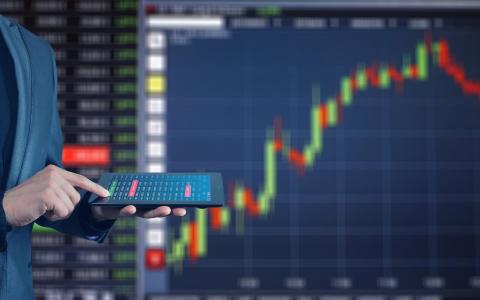
Michael Burry, Jeremy Grantham, and other seasoned market analysts have long cautioned that equities are overvalued and the economy is on shaky ground. With a potential "Trumpcession" on the horizon, their warnings may finally materialize.
Market Overview
The Atlanta Fed's GDPNow model now projects the U.S. economy to contract by an annualized 2.8% this quarter—a stark reversal from last week's 2.3% growth estimate. Meanwhile, inflation has climbed to 3% in January from 2.4% in September, stoking fears of stagflation.
Jeremy Siegel, in his latest WisdomTree commentary, noted, "Virtually all recent real economic data has surprised to the downside, including jobless claims, which unexpectedly spiked above expectations." The Wharton professor and author of *Stocks for the Long Run* explained that weak first-quarter growth projections partially reflect preemptive business stockpiling ahead of tariff changes, as imports subtract from GDP. Even if growth reaches 1% to 1.5%, it would mark the slowest pace in two years.
Siegel also suggested that while the broader stock market may still trend higher, investors should expect a shift from high-risk, high-valuation stocks like Nvidia toward more defensive assets—an outcome now more likely than at any point in the past two years.
Billionaire investor Bill Gross, the former "Bond King," warned this week that President Donald Trump’s tariff policies could choke growth and reignite inflationary pressures. Gross also pointed to geopolitical instability, particularly the Russia-Ukraine conflict, as a divisive force within Western economies that could further weaken growth stocks.
David Rosenberg, former chief North American economist at Merrill Lynch, echoed these concerns, stating, "The recession that never came (due to unprecedented fiscal stimulus over the past five years) is now coming." Rosenberg, who accurately forecasted the 2008 financial crisis, cautioned investors against increasing portfolio risk, saying, "You really need to have your head examined."
Nobel Prize-winning economist Paul Krugman attributed the weakening economic outlook to Trump’s trade policies, including tariffs on key U.S. allies, as well as corporate cost-cutting measures led by Tesla CEO Elon Musk. "America is now trapped in a burning Tesla," Krugman wrote in his Substack, warning that significant portions of the U.S. economy and government appear poised for a financial breakdown.
The recent wave of negative economic news has fueled a selloff in major growth stocks like Tesla and Nvidia, effectively erasing the gains of major U.S. indices since November’s election. However, markets saw a brief rally on Wednesday amid speculation that a potential trade deal could ease North American trade tensions.
A Reckoning for Overvalued Markets
If stocks tumble and economic growth falters, longtime skeptics of excessive valuations and macroeconomic risks may feel vindicated.
Michael Burry, renowned for his successful bet against the mid-2000s housing bubble—a story famously chronicled in *The Big Short*—has built a reputation for predicting market downturns. His firm, Scion Asset Management, has repeatedly taken short positions against widely held stocks like Tesla, Nvidia, and Apple, as well as the broader S&P 500. In 2021, Burry described the market as experiencing "the greatest speculative bubble of all time in all things" and warned that buyers of meme stocks and cryptocurrencies were heading for "the mother of all crashes."
Jeremy Grantham, cofounder and long-term strategist at asset manager GMO, has issued similar warnings. In a recent podcast, Grantham described the current U.S. stock market as the largest "super bubble" in history, suggesting that equities would need to drop by 50% to return to historical valuation norms.
Other influential voices, including Ray Dalio, Jamie Dimon, and even Elon Musk, have raised red flags about macroeconomic risks. Concerns about inflation, ballooning debt, and sustained high interest rates persist, with potential consequences for households, regional banks, and commercial real estate.
Preparing for a "Trumpcession"
Seasoned investors like David Einhorn and "Black Swan" theorist Mark Spitznagel have long decried rampant speculation and warned that many investors are blindly marching toward financial ruin.
While inflation has retreated from its mid-2022 peak of over 9%, and the Federal Reserve has cut interest rates by 100 basis points from their September highs, uncertainty surrounding Trump’s economic policies looms large. The possibility of a Trump-induced recession, or "Trumpcession," remains a critical risk factor for advisors and their clients.
No one can predict with certainty whether further stock market pain is imminent or if the economy will enter a downturn, but advisors should be prepared for increased volatility. With significant headwinds still in play, wealth managers must prioritize risk mitigation, diversification, and defensive positioning to navigate what could be a turbulent market environment.



